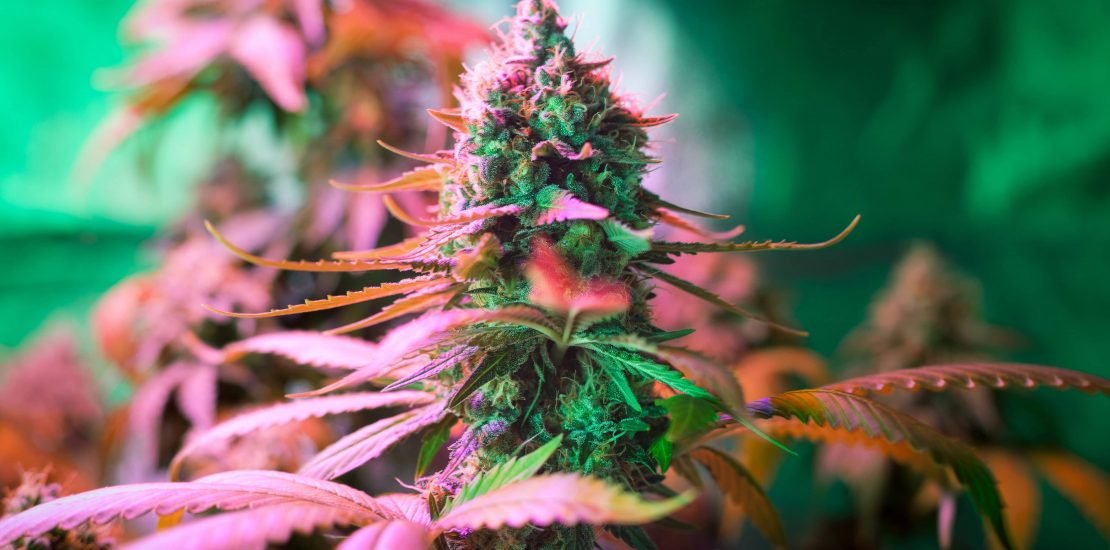- May 19, 2022
- Posted by: Administrator
- Category: News

[ad_1]
Legislative panels in the Rhode Island Senate and House of Representatives voted to approve a bill to legalize cannabis for use by adults on Wednesday after an updated version of the measure was released by lawmakers the night before.
On Wednesday, the Senate Judiciary Committee approved the bill with a vote of 9-1 while the House Finance Committee voted 12-2 in favor of the measure. The bill’s success in committee sets up a vote on the legislation by the full Senate and House, both of which have been scheduled for early next week.
State Senator Josh Miller, the Senate sponsor of the legislation, celebrated the completion of the amended version of the bill shortly before it was released on Tuesday night.
“For me this has been about a 10-year effort, so it’s nice to wrap it up,” Miller said in a statement quoted by local media.
The identical bills, Senate Bill 2430 from Miller and House Bill 7593 sponsored by Representative Scott A. Slater, would permit adults 21 and older to publically possess up to one ounce of cannabis. The bill also allows adults to possess up to 10 ounces of cannabis in a private location and to grow up to three immature and three mature cannabis plants at home.
The bill establishes a regulatory framework for legal commercial cannabis commerce, with sales of recreational pot slated to begin on December 1. An earlier version of the bill pegged the starting date for regulated adult-use cannabis sales at October 1.
The amended version of the bill also strengthens the measure’s social equity provisions. Under the new version, past civil and criminal convictions for low-level cannabis convictions will be expunged by the courts, which have been given a deadline of July 1, 2024 to complete the process. The previous version of the bill required those with convictions to petition the court to have their records cleared.
“Social equity has been a top concern for us throughout this whole process,” Slater said. “The starting line isn’t the same for people in poor, urban and minority communities, and they deserve support to ensure they get the full benefit of participating in legalization.”
Restorative justice advocates had argued that requiring those with records for cannabis possession to petition the court for expungement made the process less accessible to people from underserved communities. Cherie Cruz of the Formerly Incarcerated Union of Rhode Island applauded the change in a statement.
“The inclusion of state-initiated expungement in any framework of cannabis legalization is one of the most important concrete steps to work towards social justice, equity and repairing the harm of the failed War on Drugs to so many impacted Rhode Islanders,” said Cruz.
The new bill also includes changes for medicinal cannabis patients, including the elimination of fees for medical weed cards and plant identification tags. Adults who grow recreational cannabis would still be required to purchase plant tags.
“The amended bill is a collaborative effort to address concerns about protecting medical use, ensuring fair governance and recognizing that we can’t make this transition without taking action to make whole the communities and individuals who have been punished for decades under prohibition,” Miller said.
Rhode Island Amended Bill Addresses Governor’s Concerns
The new version of the legislation also addresses concerns raised by the administration of Rhode Island Governor Daniel McKee, with officials arguing that the bill unconstitutionally gives lawmakers powers to appoint a three-member regulatory commission that are legally reserved for the governor. Common Cause Rhode Island, a nonprofit group advocating for good government, agreed that the provisions violated the constitutional separation of powers.
The amended bill removes power given to the Senate to approve the removal of commission members and for the Senate President to recommend appointments to the panel. But Common Cause executive director John Marion said the bill continues to violate the separation of powers doctrine.
“The Cannabis Control Commission is still constitutionally defective because the governor is asked to pick one of the three commissioners from a list given to him by the Speaker of the House,” Marion said. “The Senate asserted that the original bill passed constitutional muster, but the fact that they changed several provisions in response to previous criticism is an admission that their argument didn’t rest on firm ground.”
In a statement released by McKee’s office Tuesday night, the governor thanked lawmakers for addressing his concerns about the commission.
“While this bill is different than the governor’s original proposal – it does accomplish his priorities of making sure legalization is equitable, controlled, and safe,” spokesperson Matt Sheaff said in an email. “We look forward to reviewing the final bill that comes out of the General Assembly and signing legalization of adult-use cannabis into law.”
Other parts of the bill remained unchanged. Cannabis would be taxed a total of 20%, including a 10% cannabis excise tax, 7% sales tax, and a tax of 3% that would go to local governments hosting licensed cannabis businesses. Local jurisdictions could opt out of allowing retail cannabis businesses by placing a ballot question on the ballot for the November general election, but communities that vote not to allow dispensaries will not be eligible for revenue generated by cannabis taxes. Cities and towns that already have medical cannabis dispensaries would not be able to opt out of hosting retailers.
Both the House and Senate have scheduled a vote on the legislation for Tuesday. After the bill was approved in committee, the governor said that he intends to approve the bill.
“I’ll be willing to sign the piece of legislation if it gets to my desk the way I understand it’s going to be delivered,” McKee said on Wednesday.
[ad_2]
Source link
